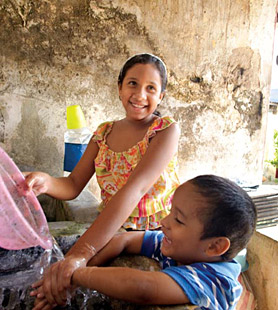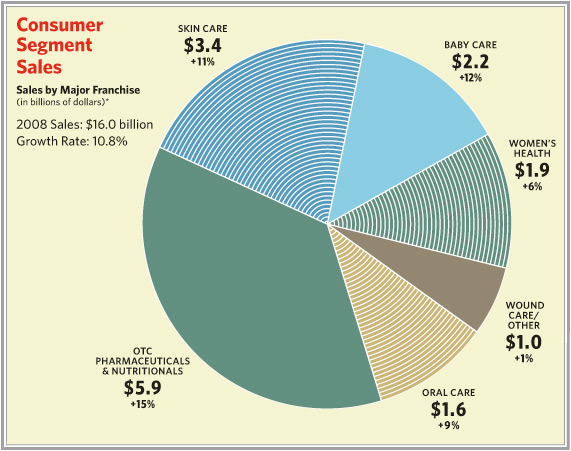Keeping Children Free of Infection
When Fernanda of Jinotepe, Nicaragua, gets intestinal worms, the athletic fourth grader who plays several sports feels listless. “I have a stomach ache. I feel really tired. I don’t want to eat,” says Fernanda, 9, who misses school days. “Sometimes I vomit.”
Fernanda is one of 400 million children worldwide under age 15 at risk of infection with soil-transmitted helminths, or STH: roundworms, whipworms and hookworms. Found mostly in tropical and subtropical areas, STH is caused by a lack of clean water and sanitation. Intestinal worms are especially harmful to children because they lead to malnutrition, anemia, stunted growth, impaired cognitive development and poor school attendance and performance.
But Fernanda’s school participates in Children Without Worms (CWW), a program that provides a deworming medication, mebendazole, donated by Johnson & Johnson. Approximately 20 million of the world’s most at-risk children are treated, representing the largest health care company donation targeting STH. CWW was created in 2005 by Johnson & Johnson in partnership with the Task Force for Global Health as the first program to focus solely on the global treatment and prevention of STH.
CWW partners with governments and organizations in eight countries to stop reinfection through hygiene education and access to improved sanitation and clean water. “You must have a prevention component or children will be continuously reinfected,” says Kim Koporc, CWW Acting Director. “The prevention component breaks the cycle.”
Johnson & Johnson began donations of mebendazole in 2007 through CWW in Bangladesh, Cameroon, Uganda and Zambia. In 2008, CWW expanded to Cambodia, Cape Verde, Lao People’s Democratic Republic and Nicaragua. As a result, these countries have greatly expanded their deworming outreach. Cameroon now reaches all of its 4 million school children. Nicaragua expanded its program to reach all children 12 and under.
“The support of Johnson & Johnson has been fundamental in improving the health of our children and increasing performance in school,” says Dr. Martha Reyes, Director of the National Immunization Program at the Nicaragua Ministry of Health.
Ultimately, CWW aims to eliminate intestinal worms in countries where it currently works and to expand donations to other countries. “Our vision is to rid the world’s children of intestinal worms so they can grow, play and learn,” says William Lin, Director, Corporate Contributions, Johnson & Johnson.


